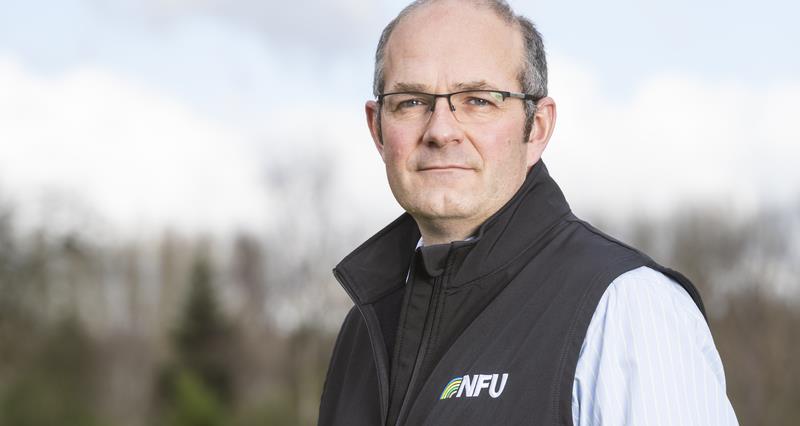╗╩╝ę╗¬╚╦said the findings, as farmers struggled with extreme weather and spiralling costs, laid bare the need for a major change of approach from government ŌĆō and threw measures announced in the Autumn Budget into even sharper relief.
The latest statistics for 2023/4 also showed dairy incomes were down 68%, mixed farmersŌĆÖ income fell by 67% and the horticulture sector suffered a 38% hit.
Grazing livestock returns fell 24% in the lowlands and 12% in Less Favoured Areas, and general cropping incomes also reduced by 24%.
Only poultry, up nearly a quarter and driven by an increase in egg output, and the specialist pig sector, up 87% on the back of a period of significant price challenges, bucked the trend ŌĆō although figures there come with a note of caution due to small sample sizes.
ŌĆśA stark pictureŌĆÖ
NFU President Tom Bradshaw said the findings painted ŌĆ£a stark picture of the challenges facing many farmers, with rising input costs, significantly lower commodity prices, a reduction in direct payments and one of the wettest winters in decades leaving many businesses worse offŌĆØ.
He added: ŌĆ£When these figures were first estimated back in March 2024, we said that we needed a government that would create policies to support British agriculture and help farmers and growers to build financial resilience into their businesses.
ŌĆ£Instead, we have seen the opposite. The recent Budget announcing changes to APR and BPR has left farmers reeling. Many will be faced with a tax bill of millions. Some will be forced to sell all or part of their farm to raise the funds.
ŌĆ£Far from protecting smaller family farms, which is what ministers say theyŌĆÖre doing, theyŌĆÖre protecting private houses in the country with a few acres let out for grazing.ŌĆØ
NFU President Tom Bradshaw
ŌĆ£These are the working people of our countryside, the majority of them working for little profit but happy in the knowledge their lifeŌĆÖs work will mean they can pass the farm on to the next generation.
ŌĆ£This tax threatens to change all that.
ŌĆ£It threatens our food security and, with the compounded impact of National Insurance and National Living Wage changes, it threatens to push up food prices for consumers.ŌĆØ
Treasury miscalculation
ŌĆ£There has been a clear Treasury miscalculation of the impact this will have on farmers and growers,ŌĆØ Tom continued. ŌĆ£The Treasury is working off the wrong figures. This policy wonŌĆÖt protect family farms, it will do the opposite.ŌĆØ
The Treasury has said 73% of APR claims are below ┬Ż1 million and so would be unaffected by this policy. However, show that only 34% of farms are under ┬Ż1 million net worth.
Tom said Treasury officials have assumed all previous APR claims are working farms, which is not the case, and did not include those eligible for BPR.
ŌĆ£Far from protecting smaller family farms, which is what ministers say theyŌĆÖre doing, theyŌĆÖre protecting private houses in the country with a few acres let out for grazing while disproportionately hammering actual, food-producing farms which are, on paper, much more valuable,ŌĆØ Tom warned.
Tom also questioned what impact assessment had been done ahead of this policy announcement: ŌĆ£If family farms are being broken up and sold, British food will be hit.
ŌĆ£There is a very real threat to our long-term food security because there is no incentive to invest for the future. Any available cash will now be going into pension provisions rather than investing in the infrastructure on farm to deliver food security for the next decade and beyond.
ŌĆ£At last yearŌĆÖs NFU Conference, we heard from Sir Keir Starmer that ŌĆśLosing a farm is not like losing any other business, it canŌĆÖt come backŌĆÖ. He was absolutely right. It canŌĆÖt. And neither can its ability to produce food for the nation.ŌĆØ
Tom called for the Treasury to reverse the changes to Inheritance Tax reliefs and said Defra and the Treasury are aware that on 19 November, NFU members will be making their way to Westminster to take part in our mass lobby of MPs.
ŌĆ£The pressure is building,ŌĆØ he said.




